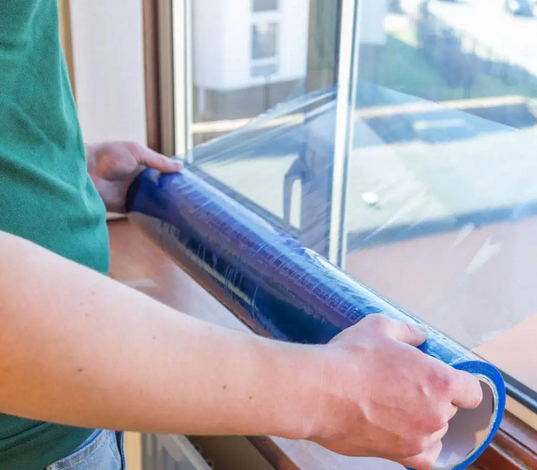Glass surfaces are widely used in commercial, residential, and automotive settings for their aesthetic appeal and functional advantages. However, they are also susceptible to scratches, cracks, and breakage. Glass protective film is an effective solution that enhances durability, safety, and privacy while maintaining the clarity and appearance of glass.

What is Glass Protective Film?
Glass protective film is a transparent or tinted adhesive layer applied to glass surfaces to prevent damage from impacts, UV rays, and everyday wear. These films are designed to reinforce the integrity of glass while adding additional features like heat rejection, glare reduction, and privacy enhancement.
Benefits of Glass Protective Film
1. Enhanced Safety and Security
Glass protective films strengthen glass surfaces, reducing the risk of shattering. In the event of breakage, the film holds the glass fragments together, preventing dangerous shards from scattering.
2. UV Protection
Many protective films block up to 99% of harmful UV rays, protecting interiors, furniture, and occupants from sun damage and fading.
3. Scratch and Impact Resistance
These films create a protective barrier against accidental scratches, scuffs, and minor impacts, extending the lifespan of glass surfaces.
4. Energy Efficiency
Certain films offer thermal insulation by reducing heat transfer, improving energy efficiency, and lowering cooling costs.
5. Privacy and Aesthetics
Frosted and tinted films enhance privacy without sacrificing natural light, making them ideal for office spaces, homes, and retail settings.
Types of Glass Protective Film
1. Security and Safety Film
Designed for impact resistance, this film prevents break-ins, vandalism, and accidental glass breakage.
2. UV and Solar Control Film
Used primarily in buildings and vehicles, this film reduces glare and heat while blocking UV rays.
3. Decorative Film
Available in various patterns, frosted finishes, and colors, decorative films enhance aesthetics while providing privacy.
4. Anti-Graffiti Film
Ideal for commercial properties, this film protects glass from vandalism, etching, and graffiti, making it easier to clean and maintain.
5. Privacy Film
One-way and frosted films offer privacy while allowing natural light to pass through, making them ideal for conference rooms, restrooms, and residential spaces.
Common Applications of Glass Protective Film
- Commercial Buildings: Protect storefronts, office windows, and display cases from scratches, UV exposure, and break-ins.
- Residential Homes: Improve energy efficiency, privacy, and protection against accidental glass breakage.
- Automotive Windows: Reduce glare, heat, and interior fading while enhancing safety.
- Retail and Public Spaces: Prevent vandalism and enhance the longevity of glass surfaces.
Choosing the Right Glass Protective Film
When selecting a glass protective film, consider:
- Purpose: Identify whether you need security, energy efficiency, privacy, or aesthetic enhancement.
- Thickness: Thicker films offer higher impact resistance, while thinner ones focus on aesthetics and UV protection.
- Installation and Maintenance: Professional installation ensures long-term durability, while easy-to-clean films reduce maintenance efforts.
Glass protective film is a cost-effective and versatile solution for safeguarding glass surfaces against damage, enhancing security, and improving energy efficiency. Whether for homes, businesses, or vehicles, investing in the right film ensures long-term protection and aesthetic appeal. If you’re considering glass protective film, consult a professional to determine the best option for your needs.
